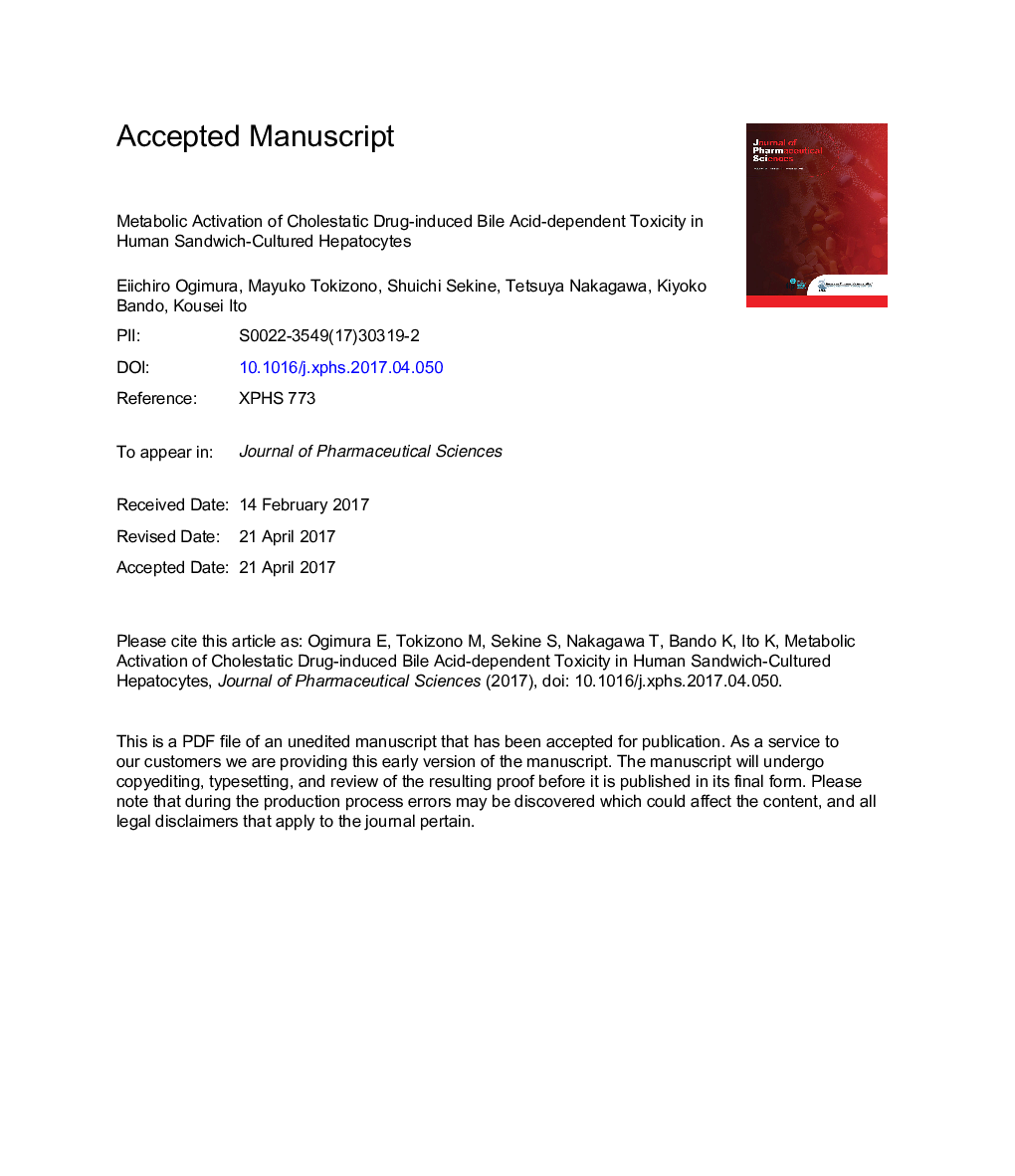| Article ID | Journal | Published Year | Pages | File Type |
|---|---|---|---|---|
| 8513972 | Journal of Pharmaceutical Sciences | 2017 | 28 Pages |
Abstract
We previously reported a cell-based toxicity assay using sandwich-cultured hepatocytes in combination with a titrated amount of human bile acid (BA) species. In this assay, test compound-induced inhibition of BA efflux from sandwich-cultured hepatocytes leads to BA-dependent cell toxicity (BAtox, i.e., cell death due to the accumulation of BAs). Using this assay, we investigated whether 1-aminobenzotriazole (1-ABT; a nonselective cytochrome P450 inhibitor) enhanced or suppressed test compound-induced BAtox. There was a tendency that BAtox of many compounds was enhanced by 1-ABT in human hepatocytes; in contrast, such a tendency was not observed in rat hepatocytes. In particular, 1-ABT tended to enhance BAtox of several compounds (clopidogrel, ticlopidine, everolimus, etc.) in human, whereas 1-ABT tended to enhance BAtox of only ticlopidine in rat. These results indicate that this system can be used to evaluate BAtox while taking into account drug metabolism and the existence of an interspecies difference in the effect of 1-ABT treatment on BAtox.
Related Topics
Health Sciences
Pharmacology, Toxicology and Pharmaceutical Science
Drug Discovery
Authors
Eiichiro Ogimura, Mayuko Tokizono, Shuichi Sekine, Tetsuya Nakagawa, Kiyoko Bando, Kousei Ito,
